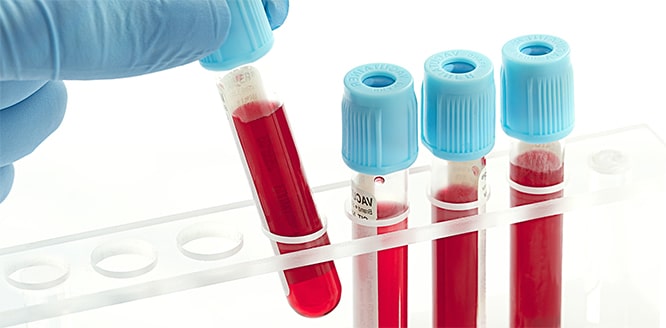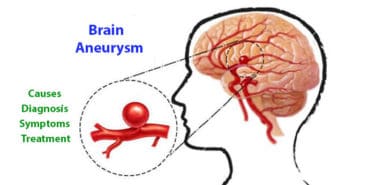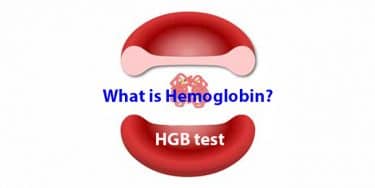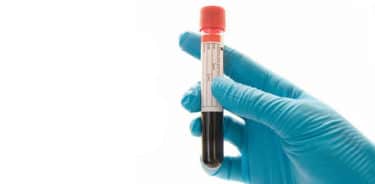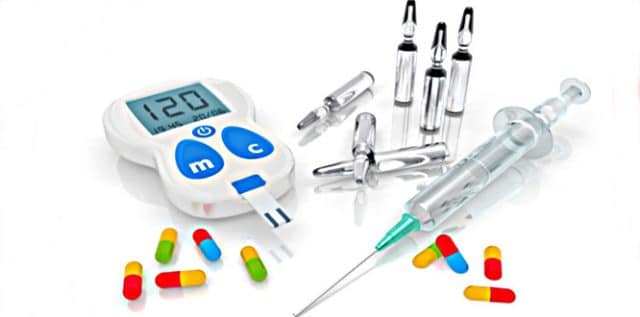
Table of Contents
What is hyperglycemia (High blood sugar)?
Hyperglycemia means high blood glucose value, and is a distinctive sign of diabetes (type 1 diabetes and type 2 diabetes) and prediabetes. Blood sugar should be at a certain level in the blood. It should not fall in case of hunger and should not increase much after meals. To achieve this balance, many hormones, especially insulin and glucagon, are involved.
Hyperglycemia is considered if blood sugar is above 100 mg/dl on empty stomach and 140 mg/dl when full.
Who has hyperglycemia?
- Diabetes patients
- People who miss an insulin dose or use insufficient insulin
- People with any infection problems
- Cortisone users
- Patients with pancreatic cancer
- Patients with hemochromatosis (excess iron accumulation in the body)
- Cystic fibrosis patients
- Glucagonoma (a tumor of pancreas) patients
- Cushing syndrome patients
- Acromegaly patients
- Patients with hyperthyroid
- Patients with pheochromocytoma (a tumor of the adrenal glands)
Hyperglycemia causes
- Inadequate secretion of insulin hormone, which reduces blood sugar levels
- Inadequate dosing or skipping of insulin used as a drug in diabetic patients
- Non-regular use of oral antidiabetic drugs that lower blood sugar
- Insulin hormone secreted from the pancreas cannot be used in the body for various reasons
- Excessive secretion of glucagon, adrenaline, cortisone and growth hormones due to some diseases that increase blood sugar level
- Use of cortisone-derived drugs
- High consumption of high-calorie and quick-breaking simple sugar-containing foods
- Feeding on foods rich in saturated fats and less amount of pulp
Risk factors of hyperglycemia
- Obesity
- Having diabetes in the family
- Hypertension
- High cholesterol
- Polycystic ovary syndrome (PCOS)
- Still lifestyle
- Organ transplantation (especially kidney transplantation)
Hyperglycemia and diabetes
Not all people with high blood sugar have diabetes. However, in order to be diagnosed with diabetes, there must be hyperglycemia condition. Fasting blood sugar above 100 mg/dl is hyperglycemia; if it is above 126 mg/dl, it is called diabetes.
Blood sugar control is at the heart of the diabetes treatment plan, and high blood sugar is very dangerous for both type 1 and type 2 diabetes patients. If left untreated, it can cause serious complications such as diabetic coma. Prolonged, if not severe, hyperglycemia may lead to complications affecting the eyes, kidneys, nervous system and heart in diabetic patients.
Hyperglycemia coma (Diabetic coma)
The condition of confusion and loss of consciousness because of the high blood sugar level is called diabetic coma. It is more common in diabetes patients.
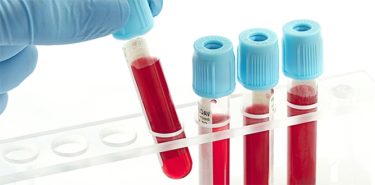
There are two important hyperglycemic coma: diabetic ketoacidosis and hyperosmolar hyperglycemic condition.
In diabetic ketoacidosis, blood sugar increases above 250 mg/dl, whereas in hyperosmolar hyperglycemic condition, it increases above 600 mg/dl. Infections in diabetics may occur in cases of non-regular use of medication, stroke and heart attack. Since the sugar in the urine draws too much liquid, excessive fluid and electrolyte loss occur.
Because both conditions are important causes of death in diabetes, they must be urgently intervened. A person whose blood sugar level is too high should consult the emergency department without any delay.
What are the effects of high blood sugar?
- Hyperglycemia coma
- Heart attack
- Stroke
- Kidney failure
- Damage to nerve cells
- Vision problems
- Non-healing wounds
- Infection
- Sexual dysfunction
- Risky pregnancy
Symptoms of high blood sugar
- Frequent urination
- Urination at night
- Extreme thirst, drinking water too often
- Dry mouth
- Weakness, fatigue
- Late healing of opened wounds
- Unexplained weight loss
- Dry skin
- Blurred vision
- Frequent infection
If hyperglycemia has been present for a long time and been gradually increasing, it may not always show symptoms. However, if it is extremely high in a short time, unconsciousness or loss of consciousness may be the first symptoms.
Diagnoses of hyperglycemia
Diagnosis is made by measuring the amount of sugar in the blood taken intravenously or from the finger tip on an empty stomach. When full, the reference ranges of blood sugar for hyperglycemia vary.
- If the blood sugar is above 183 mg/dl, the sugar passes into the urine. The presence of sugar in urine suggests that there may be a high blood sugar level.
- HemoglobinA1C measurement provides information about 3-month blood sugar. If it is above 6.5, it indicates that the blood sugar is high in the last 3 months.
Emergency treatment of hyperglycemia
Hyperglycemic emergencies usually occur in diabetics. For this reason, people who have diabetes should frequently follow their blood sugar levels. It is necessary to know which situations are urgent.
What to do?
- The patient or his/her relatives should call 112 immediately and ask for help.
- If the patient is conscious, he/she should drink plenty of liquids because of the loss of fluid.
What to avoid?
- If the patient is unconscious or unconscious, nothing to eat or drink should be given.
- Liquids consumed for fluid loss should not be sugary.
- Oral diabetes medications should not be used.
Treatment of hyperglycemia
- If there is an underlying disease that may cause hyperglycemia, this condition should be treated first.
- One should lose weight.
- Walking, sports or exercise should be done regularly.
- Diet content should be administered by a dietitian.
- The patient should be educated on issues such as treatment regimen and the use of drugs such as insulin.
Hyperglycemia medications and drugs
If diabetes develops, drug treatment is initiated. These drugs can be used alone or in combination:
- Insulin-releasing antidiabetics: Sulfonylureas and glinides are in this group. They act by increasing insulin secretion from the pancreas. The use of these drugs can cause hypoglycemia (low blood sugar) and therefore should be used with caution. They may cause weight gain.
- Insulin sensitizing drugs: Drugs such as metformin and thiazolidinediones are in this group. They act by reducing insulin resistance. They can cause digestive disorders such as nausea and vomiting. It should be used with caution in heart, liver and kidney insufficiencies.
- Alpha glucosidase inhibitors: They affect hyperglycemia by reducing carbohydrate absorption in the small intestine. Acarbose is in this group. It has side effects such as abdominal pain, bloating and diarrhea.
- Incretin-mimetic drugs: It acts by increasing insulin secretion from the pancreas and slowing gastric discharge. Dipeptidylpeptidase-4 inhibitors are in this group.
Insulin treatment
Insulin treatment is initiated,
- if blood sugar does not fall despite oral medications
- if your blood sugar levels are too high at the beginning
- If the HBA1C is too high
- if urgent intervention such as hyperglycemia coma is required
- if there is a liver or kidney failure.
Insulin is administered by subcutaneous injection, by intravenous route or by pump. There are long-acting and short-acting varieties. The most important side effect is low blood sugar. Before using insulin, you should be educated about how to use insulin and related problems.
Other treatment methods of hyperglycemia
Pancreatic islet transplantation: Studies on pancreatic islet transplantation are still being carried out in well-equipped centers.
Herbal remedies for hyperglycemia
It is a common idea that some plants and spices such as cinnamon and green tea have blood sugar lowering effects. However, there is not enough research to support this information. Research is still ongoing.
If you are experiencing hyperglycemia, you should consult your doctor before starting any herbal method.
Hyperglycemia and hypoglycemia
Hypoglycemia is a condition in which blood sugar is less than 70 mg/dl in patients with diabetes and 50 mg/dl in patients without diabetes. Hypoglycemia occurs within minutes. Hyperglycemia develops slowly, it may take hours or days to emerge.
Since hypoglycemia is more urgent, the patient should be treated urgently in cases where sugar cannot be measured or in case of unconsciousness. Hypoglycemia should always be kept in mind, especially in patients with diabetes using insulin.
Hyperglycemia in infants and newborns
It is also common in newborns despite the low level of sugar is more observed due to insufficient reserves. Hyperglycemia may occur in neonatal period especially in premature babies due to given external sugars, insulin resistance and sugar intolerance.
Some medications used by the mother and some hereditary diseases can also cause hyperglicemia. Blood sugar in newborns is targeted to be between 70-150 mg/dl. Blood sugar level exceeding 150 mg/dl is defined as hyperglycemia.
Prevention of high blood sugar
- Lose weight.
- Follow an appropriate diet under supervision of a dietitian
- Exercise regularly.
- If you have diabetes, follow the treatment given by your physician.
Hyperglycemia and nutrition
It is important to determine the nutritional content in order to prevent problems related to hyperglycemia. Weekly and daily nutrition programs should be made, foods that are good or harmful to be consumed should be known and shopping should be done accordingly.
Diabetes nutrition pyramid can be used for determining dietary content. From the bottom to the top “Cereals, legumes and starchy foods”, “vegetables and fruits”, “milk, yoghurt”, “meat” and “fats, sugar and sugary foods and alcoholic drinks” groups. Foods at the bottom of the pyramid should be consumed more.
Main and intermediate meals must be followed. The interval between snacks and main meals should be kept short. Meal should not be skipped. Always have healthy snacks in your bag, car, your workplace drawer.
What to eat?
- Complex carbohydrates: Cereals, bread, legumes, fruits, vegetables, milk and yogurt.
- Red meat: at least 2-3 meals per week
- White meat (chicken, fish, turkey): at least 2-3 meals per week
- Legumes: 2-3 meals per week
- Whole wheat bread instead of white bread, rye or oat bread, lentil soup,
- Plenty of water
Which foods to avoid?
- Simple carbohydrates: sugar, sweets, honey, molasses, marmalade, jam
- Foods with high glycemic index: Bananas, grapes, melons, watermelons, figs, carrots and boiled potatoes.
- Fruit juices
- Foods with high fat and sugar content: Pastry, cake, cookies, biscuits, pies, donuts, halva and other desserts
- Fat-fried, roasted foods: meat, vegetables, dough, french fries
- Fatty meat and fish: Chicken skin, fatty animal parts, offal.
- Whole milk and dairy products
- Delicatessen: Salami, sausage, bacon
- Fatty foods: Cream, ketchup, mayonnaise, salad dressings, cake sauces,
- Solid fats: Butter, suet, tail fat, solidified margarine
Tips for Hyperglycemia
- Hyperglycemia can cause diabetes if not treated properly. Always follow the doctor’s instructions.
- If diabetes develops, get a training for medications, especially how to use insulin.
- Because hyperglycemia is usually a long-term illness, do not skip doctor’s appointments.
- Learn about the long-term problems of the disease and take precautions accordingly.
- Go to the nephrologist for kidney control and ophthalmologist for eye control at the recommended intervals.
- Do regular exercise under the supervision of your doctor.
- The perineal area should always be kept clean (the area between the vagina and the anus) as infections may develop frequently.
- Pay attention to the oral and dental health.
- Stop smoking because it increases the risk of a heart attack.
- Get pneumonia and flu vaccines.
References: 1- Hyperglycemia, 2- High blood sugar, 3- About Diabetes

